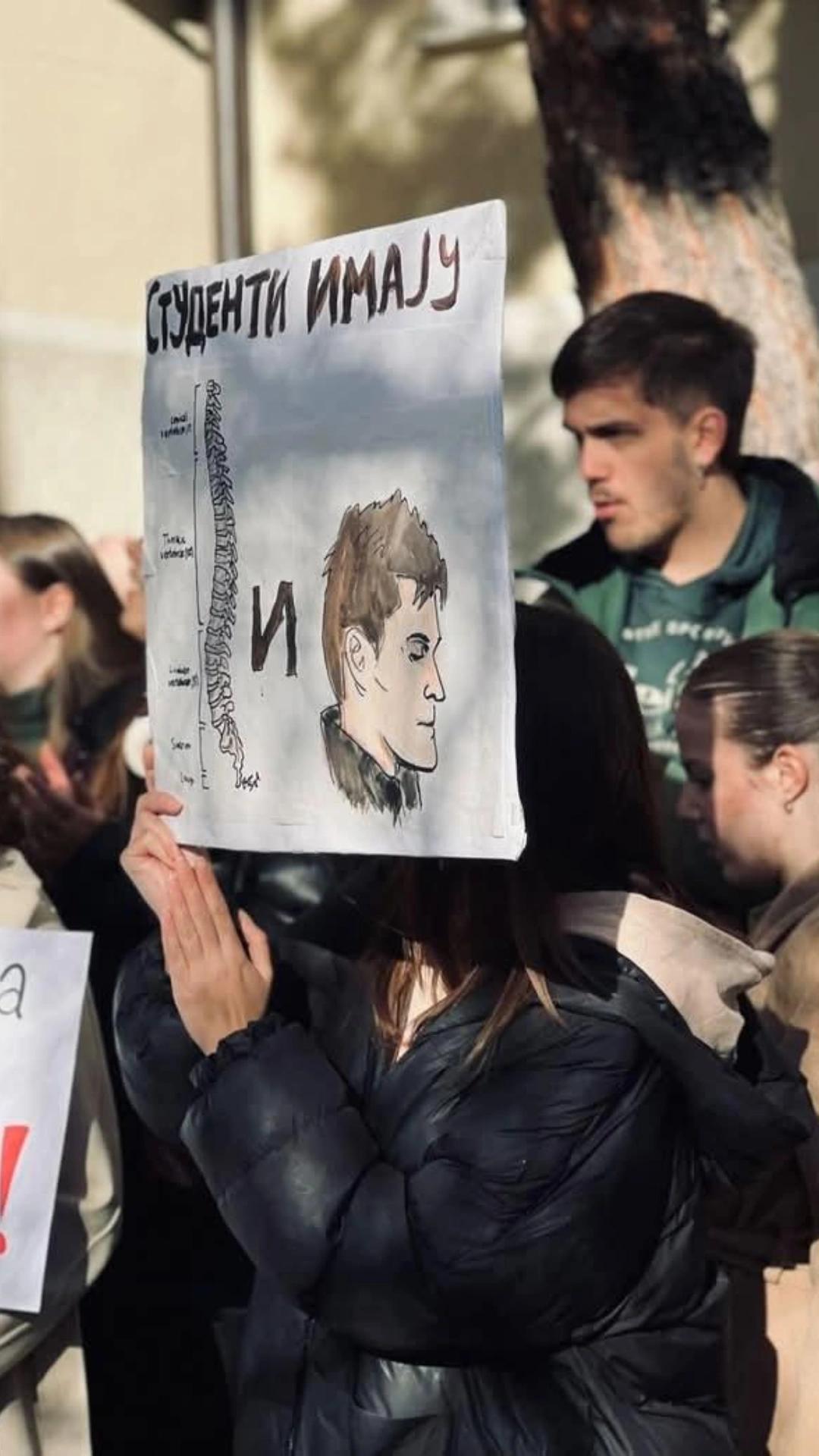Students in Serbia have kept the two largest universities in Belgrade and Novi Sad in a blockade for almost a month. The first blockade started on November 22nd when students and professors of the Faculty of Dramatic Arts joined the action ‘Stop Serbia!’ (Zastani Srbijo) to commemorate the lives of fifteen people who lost their lives when the entrance to the central railway station in Novi Sad collapsed on November 1st. Students and professors faced physical violence from whom it was later established were the members and sympathisers of the governing Serbian Progressive Party.
Stop Serbia has been taking place in the majority of Serbian cities every Friday after the collapse and consists of standing in silence for fifteen minutes at 11.52 am, regardless of where people find themselves.This action usually includes peaceful blockades of traffic.
On Dec. 2nd students in Belgrade started blocking the headquarters of the university with three faculties nearby, while students in Novi Sad blocked the Faculty of Philosophy. By Dec. 13th all faculties and school of universities in Belgrade and Novi Sad were blocked. By the time of writing, students of two other state universities in Niš and Kragujevac have also entered the blockade. In total more than 50 faculties in schools are under blockade.
The station building has been under renovation since 2021, for the first time opened during the election campaign in March 2022 and then again finally re-opened in July 2024. It was established that at the moment of second opening the building did not have the necessary licence.
Since the beginning of the blockade, students were consistent in demanding that all the documents related to the reconstruction of the Railway Station in Novi Sad were made public. Students also demand the cease of prosecution of students and other citizens participating in blockades as well as the arrest and prosecution of individuals who attacked students on November 22nd.
Students also asked for an increase of higher education funding. Despite statements of several state officials that all demands were met, the government has still not published the complete documentation, while the legal processes against students and citizens participating in blockades and protests are still ongoing.
Since the beginning of blockades and protests, students have been exposed to repression which was orchestrated and led by the officials of the governing party. Instances of violence include verbal and physical attacks on students and other citizens during protests. There were several recorded attempts of running students and citizens by cars, reminiscent of methods used by authoritarian regime of Slobodan Milošević in the 90s.
Students quickly gathered sympathies of numerous social groups ranging from the academic community and informally organised farmers and citizens, actors and sportspersons, as well as syndicates of teachers, artists and other professions. High school students also supported students by blocking the work of numerous high schools in the country. Students were also supported by no less than circa 100,000 citizens who gathered on December 22nd to commemorate the victims of the Railway Station collapse.







